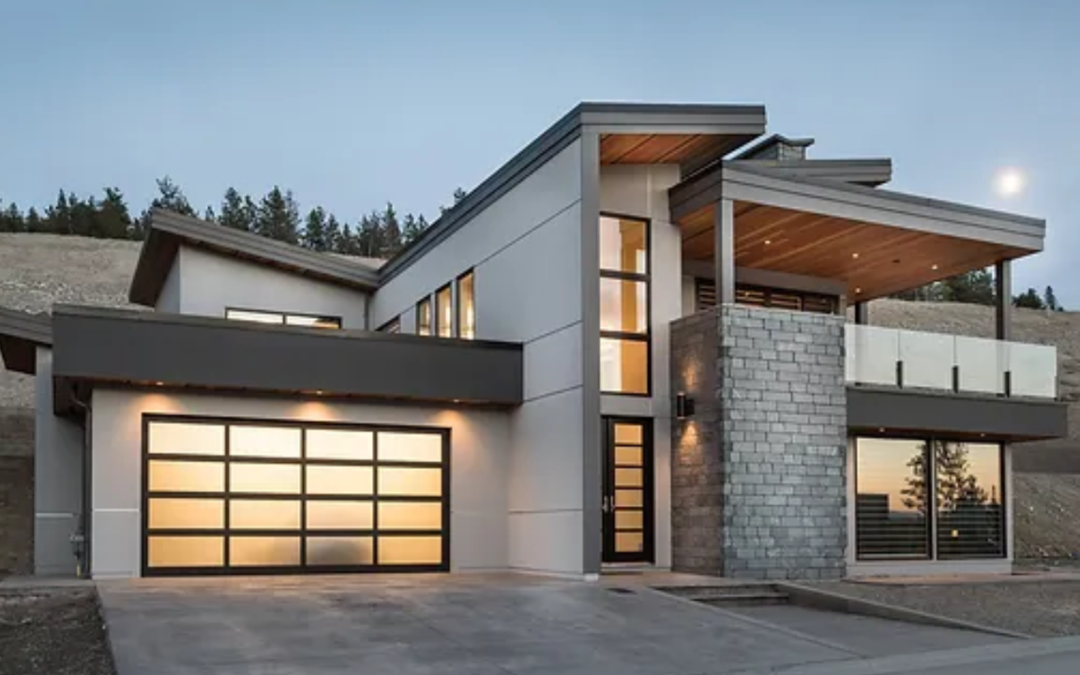
What Factors Impact Your Custom House Design?
Building a custom home is the desire of many homeowners due to the possibility of creating a home that meets their specific requirements. However, owning a custom home is more than the selection of floor designs and colors of the walls. It comprises all the aspects of location, price, planning, and designing to how and when the building will be constructed. Professional services from skilled service providers such as Christopher Custom Homes, and a custom home general contractor guarantee that every detail is well thought through and implemented in line with your expectations. As you read this article, you will have an insight into what goes into the making of a dream custom house.
What to Think About When Building a Custom Home?
The process of design and construction is important for a custom home before going into the detailed concept and construction. This involves determining your lifestyle requirements, choosing and sticking to an affordable price range, and comprehending the opportunities of furniture design. Here are some essential considerations when embarking on the journey of building a custom home:
1. Lifestyle Needs and Preferences
Your home should echo the mode in which you live. This is the basis for most custom house designs for most people. When choosing a custom-designed home builder, a person has to think about everyday habits, family organization, or potential changes in the future. For instance:
- Do you need a home office or study area for remote work?
- How many bedrooms and bathrooms are required to accommodate your family and guests?
- Is an open-concept layout important for your lifestyle?
- Do you prefer modern aesthetics or traditional elements in your home design?
These questions assist you in speaking out your wants to the custom home general contractor to be included in the architectural drawings.
2. Budget
The amount of money or the budget you set for your new home will be a major clue as to what you want your custom home design to look like. Understanding this helps your contractor recommend the best since you know your financial ceiling without going for inferior parts. This accounts for construction costs and ensures that they do not Spiral out of control when construction is in progress.
Some factors that impact the cost of your custom home include:
- The size of the home
- Type of materials used
- Complexity of the design
- Energy-efficient technologies
- Sustainable building practices
It’s wise to agree with your contractor on a probable reserve for any extra costs that may be incurred while constructing the house.
3. Location and Site Considerations
The space of the lot that your home will be built, including its elevation will also dictate the style of the home. The general contractor for custom home requires having a general idea of the type of soil, slope, and environment to ensure the house is stable. For example:
- Sloped lots may need split-level or multi-story designs.
- Coastal areas may require raised foundations.
- Scenic views should feature large windows or outdoor spaces.
Other restrictions that may affect the details of a custom home include local zoning laws and ordinances of neighborhoods. Other local ordinances exist as to location, the size of your home, or even finishes that your home must meet in that region.
4. Architectural Style
Picking a favorite for your architectural design is as important and fun as any other part of the procedure. Whether you prefer a modern, minimalist approach, a traditional farmhouse, or a luxurious Mediterranean-style villa, your choice of architectural style will determine various design elements such as:
- Rooflines and exterior facades
- Window shapes and sizes
- Materials like brick, stone, or siding
- Interior design features, such as open beams or vaulted ceilings
To achieve the best results clients should hire custom-designed home builders who have been practicing different styles of architecture.
5. Functionality and Layout
There exists little difference between the concept and design of a house as well as functionality. It is therefore important to properly design your home to effectively utilize the physical space, provide comfort, and improve the functionality of each room. Important aspects to consider include:
- Flow and Circulation: Distances between rooms should not be too tight and should be in such a way that they are easily accessible. For example, locating the kitchen close to the garage may help in the storage of groceries after shopping and retiring, while arranging for bedrooms to be located off the living areas may afford a certain degree of privacy.
- Room Placement: There are possibilities of room placement affecting energy efficiency. For example, locating habitable rooms that require considerable natural light like the dining room and kitchen toward the south exposure to capture natural light enables one to save energy during the cold season by keeping the internal temperature warm.
- Storage Solutions: Don’t leave storage while designing repetitive buildings. People getting custom homes benefit from the construction of spacious wardrobes, kitchen cabinets, and featured attic space for storing items.
6. Sustainability and Energy Efficiency
Essential aspects such as sustainability and energy efficiency of homes are now a priority among customers who build custom homes. Planning your home with such factors into consideration is not only eco-friendly but also economical in the long run on energy bills. Some eco-friendly considerations include:
- Solar Panels: Solar energy utilization is a good way to decrease the amount of carbon emissions within a house.
- Energy-Efficient Windows and Insulation: Insulation and windows are the best investments one can make throughout the house since they control the heating and cooling costs.
- Sustainable Materials: Recycling of building materials such as bamboo floors, or recycled wood is also another consideration that will make your home environmentally friendly.
Your custom design home builders can direct you to many different sources to consult on environmentally friendly ideas to install in your home.
7. Future-Proofing Your Home
Building a custom home is a luxury, it requires a long-term approach. That’s why when choosing the design of your home, you should be thinking about how you are going to need to use the house after a few years or decades. For instance:
- If you want a home that will never be old, wide doorways, single-level living areas, and an elevator may be a good feature to include.
- If you are planning for a large family, more bedrooms may be needed or the space may need to be converted from one use to another.
- Smart lighting, security systems, and other related home technology can be useful in keeping the home from becoming outdated as technology advances.
What Factors Determine the Structure and Design of a House?
The structure and design of a custom home are shaped by multiple factors, including:
- Climate and Environment: In some regions, in winter climates, homes will require mechanisms for insulation and heating to protect them from the cold while in other regions, such as summer climates, homes will require mechanisms for ventilation and cooling.
- Building Codes and Regulations: There are local laws that can dictate everything from the size of the home to the type of materials used.
- Available Materials: Home design elements are flexible, and the style, color, and type of materials used in the construction process including wood, stone, or metal determine the appearance and robustness of the home.
- Technological Integration: As technology advances, it evolves that modern homes can be fitted with automation systems, home theaters, and energy systems.
What Are the 4 Characteristics to Consider When Designing a House?
When designing a custom home, four essential characteristics should guide the process:
- Aesthetic Appeal: Many homeowners don’t pay much attention to the design of their homes because it is an extension of their personality.
- Functionality: Make sure the home’s layout meets the functional requirements for day-to-day use and is both comfortable and convenient.
- Sustainability: Use energy-efficient technology and environmentally conscious materials to reduce your energy footprint.
- Longevity and Durability: Choose better quality materials and patterns that will last in terms of both durability and looks.
Conclusion
Designing a custom home involves individual and family needs, desirability of the site, privacy, moving costs, and sustainability. When working with design home builders like the custom design home builders at Christopher Custom Homes, everything in your home is well-arranged and built to perfection. Your custom home should not only have aesthetic value and your tastes and preferences, but also be functional and environmentally friendly at different stages of life. Whether you are starting the whole process or just changing your ideas, hiring the best custom home general contractor can help you achieve your goal.
